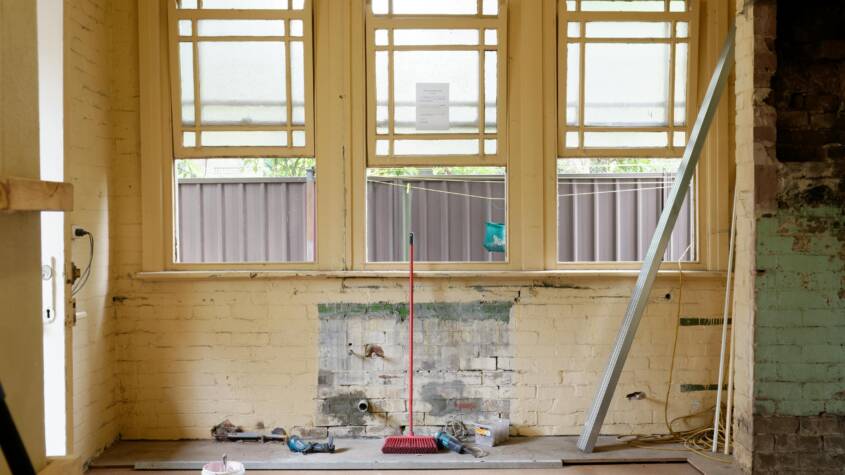
Custom home builders play a crucial role in helping individuals create their dream houses tailored to their specific needs and preferences. Engaging a custom home builder ensures that the design and construction of a home reflect the unique lifestyle of its owners. This process involves collaboration, where the builder works closely with clients to translate their vision into reality.
These professionals are equipped with the knowledge and resources to navigate challenges that arise during construction. They provide valuable insights on materials, design options, and local regulations, making the complex journey of home building smoother and more efficient. Choosing the right custom builder can make all the difference in creating a space that truly feels like home.
The benefits of hiring a custom home builder extend beyond just personalization. With their expertise, clients can achieve a high-quality construction process that meets their expectations and budget. This not only enhances satisfaction but can also increase the long-term value of the home.
Understanding Custom Home Building
Custom home building involves creating a unique residence tailored to individual preferences and requirements. Key components include the design process, construction phases, and the selection of materials and craftsmanship.
Designing Your Dream Home
The design phase is crucial in custom home building. Homeowners collaborate with architects and designers to articulate their vision.
Important aspects include:
- Layout: Functional, with consideration for family needs.
- Style: Reflects personal taste, whether modern, traditional, or eclectic.
- Sustainability: Options for eco-friendly designs and energy-efficient features.
3D modeling and virtual tours can help visualize the space before construction begins. Planning must also account for local building codes and regulations to avoid legal issues.
The Construction Process
Construction begins only after finalizing designs. It typically follows these steps:
- Site Preparation: Clearing and grading the land.
- Foundation: Pouring concrete for stability.
- Framing: Erecting walls and roofing structures.
- Utilities: Installing electrical, plumbing, and HVAC systems.
Clear communication between the builder and the homeowner is essential at this stage. Regular updates ensure the project stays on schedule and within budget, allowing for adjustments as necessary.
Materials and Craftsmanship
Choosing materials significantly impacts a home’s durability and aesthetic. Custom builders often offer a range of high-quality options for:
- Exterior Finishes: Brick, wood, or stucco.
- Interior Materials: Flooring, countertops, and cabinetry selections.
Craftsmanship plays a vital role; skilled tradespeople ensure that construction meets the highest standards. Attention to detail can elevate the home’s value and appeal, making it important to prioritize quality over cost in material selection.
Selecting a Custom Home Builder
Choosing the right custom home builder is crucial to ensure a successful project. Key considerations include evaluating reputation and experience, understanding budgeting and financing options, and navigating contracts and warranties.
Evaluating Builder Reputation and Experience
When selecting a custom home builder, examining their reputation is vital. A strong reputation often indicates reliability and quality. Potential clients should look for builders with positive reviews on platforms such as Yelp and Google.
It’s also beneficial to ask for references from previous clients. This provides insight into the builder’s communication style, adherence to timelines, and ability to resolve issues.
Experience in the specific type of home desired is another key factor. Builders with a track record of completing similar projects are more likely to meet expectations. Checking certifications and affiliations with professional organizations can further establish credibility.
Budgeting and Financing
Setting a clear budget is essential before embarking on a custom home build. This budget should account for various costs, including land acquisition, materials, labor, and permits. Custom home builders often provide detailed estimates, helping clients to understand potential expenses.
Financing options also play a critical role. Many builders work with lenders that offer specialized loans for custom projects. Clients should compare these options to secure favorable terms that suit their financial situation.
Understanding payment schedules is important as well. Typically, payment is made in phases based on project milestones. Clear communication about finances prevents misunderstandings during the process.
Navigating Contracts and Warranties
Contracts are a foundational element in the building process. Clients must thoroughly review contracts before signing. They should ensure that all project details, including timelines and costs, are clearly outlined.
Warranties provide protection against potential defects. Builders often offer a warranty that covers various aspects, such as structural issues or workmanship. Clients should inquire about the length and conditions of warranties to understand their coverage.
Clear terms surrounding changes to the project should also be included in the contract. Discussing how adjustments will impact the budget and timeline can prevent disputes later. A well-structured contract facilitates a smoother building experience.
Gold Belt Buckle: A Timeless Accessory for Every Occasion
The gold belt buckle has long been a symbol of status, craftsmanship, and personal style. …










